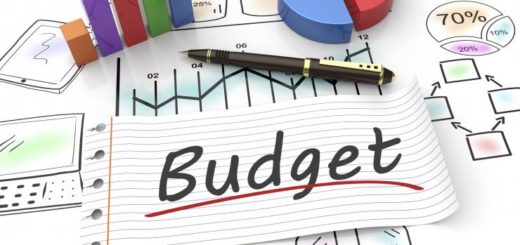NIGERIA’S MACROECONOMIC LANDSCAPE: GDP GROWTH AND CALL FOR MORE ACTIONS
Nigeria’s economy like every other economies in the world was faced with grave threat, most especially oil dependent-economies- an indication of the headwinds the economy is facing from the coronavirus pandemic and low crude prices, reflecting in fall in government revenue. Nevertheless, the country’s economic growth as released by National Bureau of Statistics (NBS) indicated an expansion by 1.87% in the first quarter of the year, compared with growth of 2.55% in the previous quarter.
The slowdown in the GDP growth reflects the earliest effects of the disruptions on non-oil economy, coupled with an escalating war of words between the U.S. and China which resulted into low demand in global oil. The lockdown of the Nigerian economy commenced in April due to the pandemic, therefore, the real impact of COVID-19 on the economy would be felt in the Q2 GDP result. We applaud the managers of the economy, as the economy grew faster than expected in the first quarter because of a boost in oil production.

In our analysis of the country’s economy, we observed a strong correlation between global oil prices (brent) and the country’s GDP between Q1 2014 and Q1 2020, indicating that the direction of growth is pretty much determined by the direction of oil prices. It can be adduced that a dollar increase in global oil prices corresponds with average 0.1% rise in growth. A similar trend was witnessed in Q2 2017, when the country exited from recession, it was not buoyed by government policies, but rather rebound in oil prices. This calls for a more drastic management of the country’s economy from the global shock of oil prices. Creating enabling environment for the non-oil economy to be the major contributor to the revenue profile would salvage the economy from external shocks.
We anticipate contraction in the second quarter, as the economy witnessed a 6week’s lockdown on the commercial nerves of the country, and similar trend witnessed in global economy, except China, whose consumption of fuel due to opening of industrial hubs and transportation could portends mild positive growth pattern due to demand for crude oil.
There is the need for the Fiscal and Monetary authorities to develop a more aggressive and decisive policies to sustain an economic recovery in the wake of further low oil prices. We believe that a more coordinated stimulus packages targeted at the worst-hit sectors of the economy would sustain the economy from experiencing contraction of 8.9% as predicted.



Recent Comments